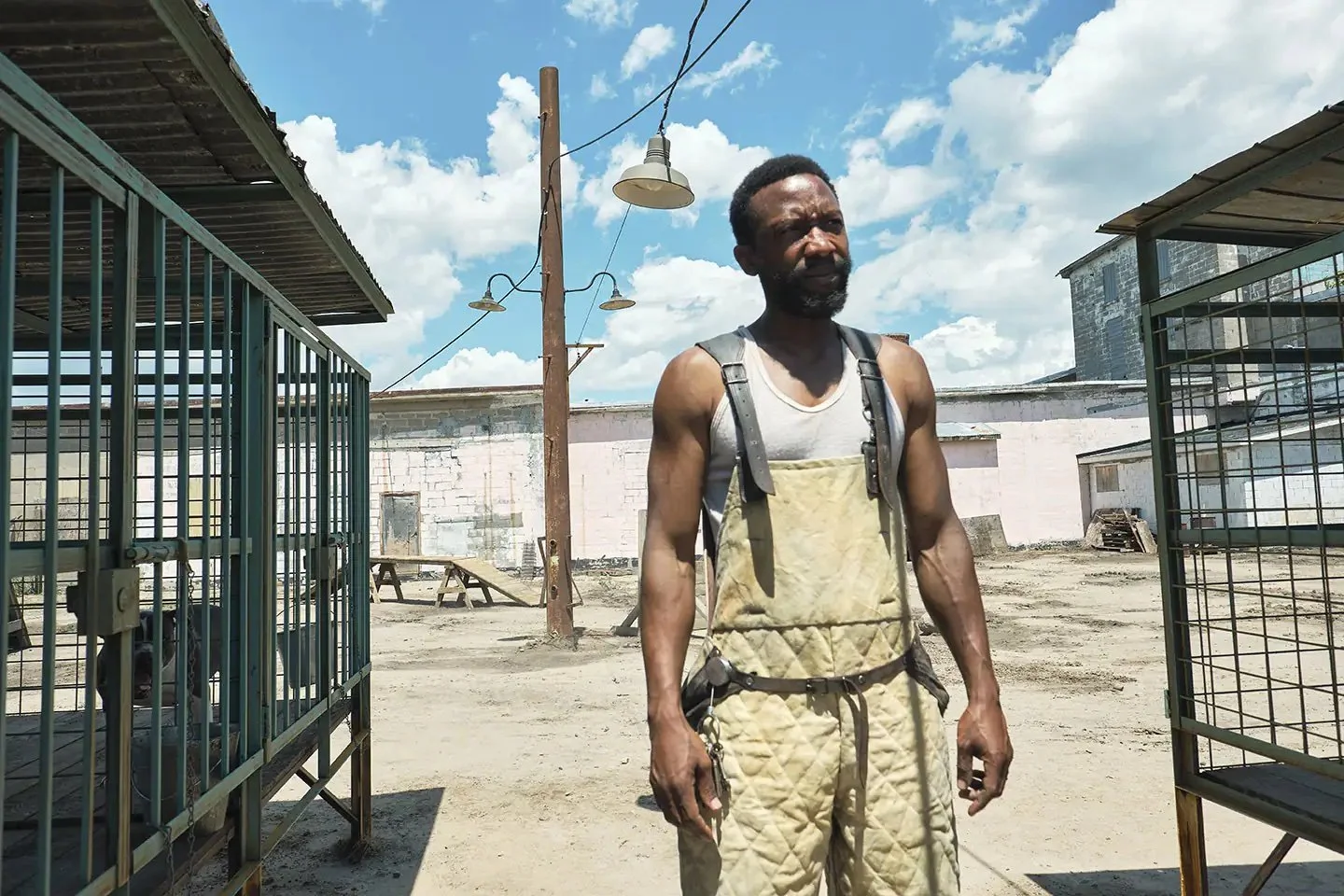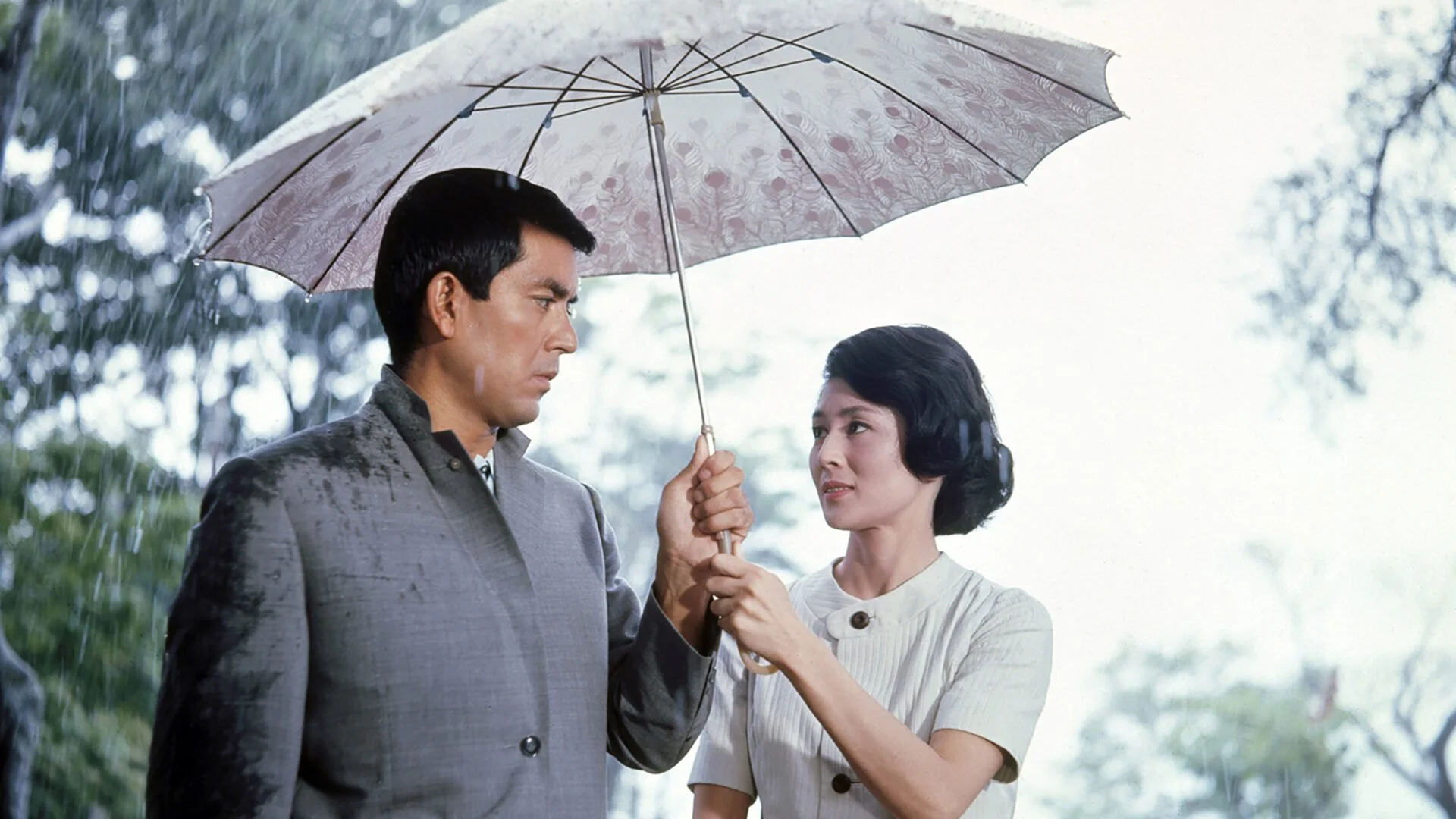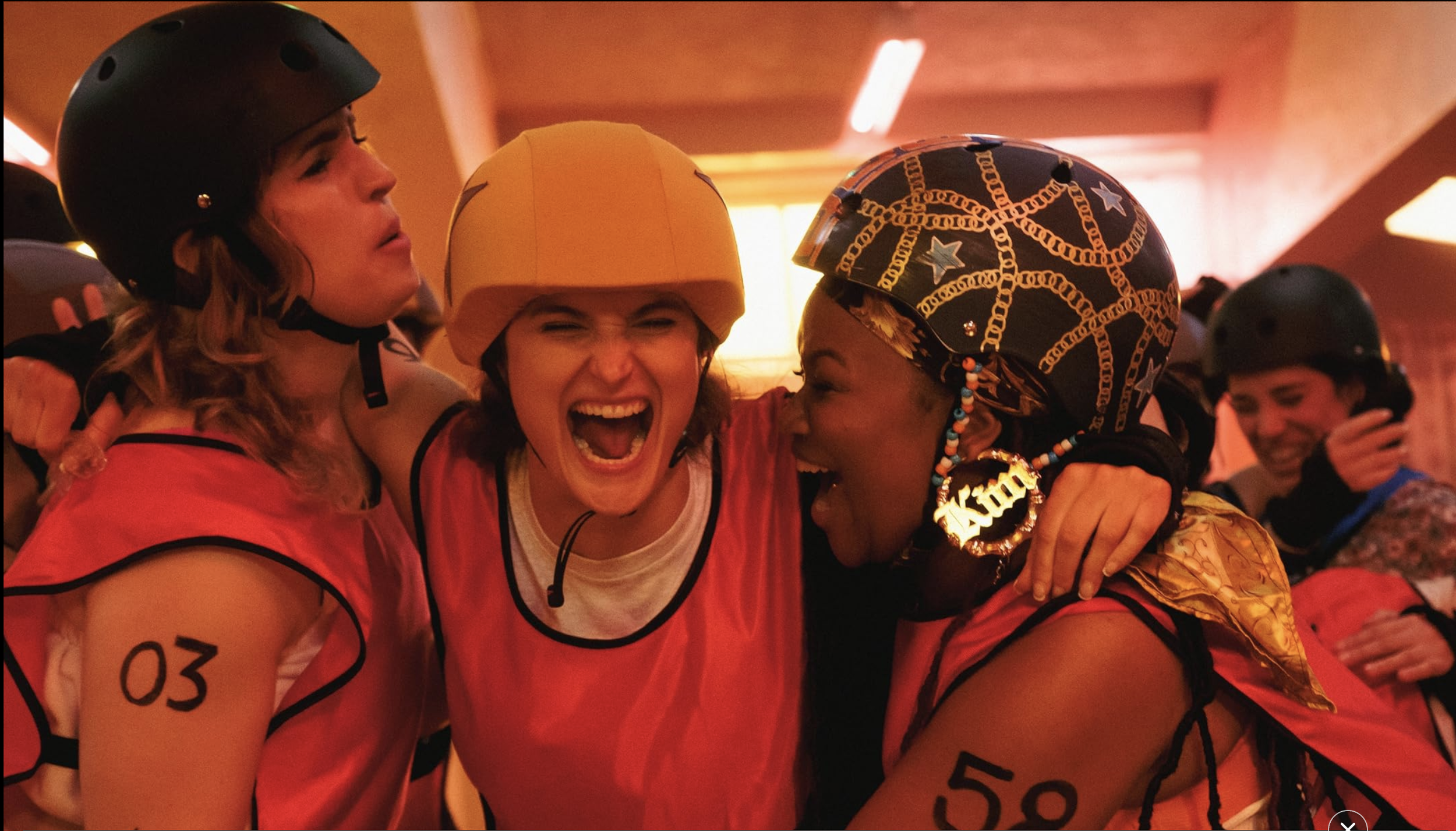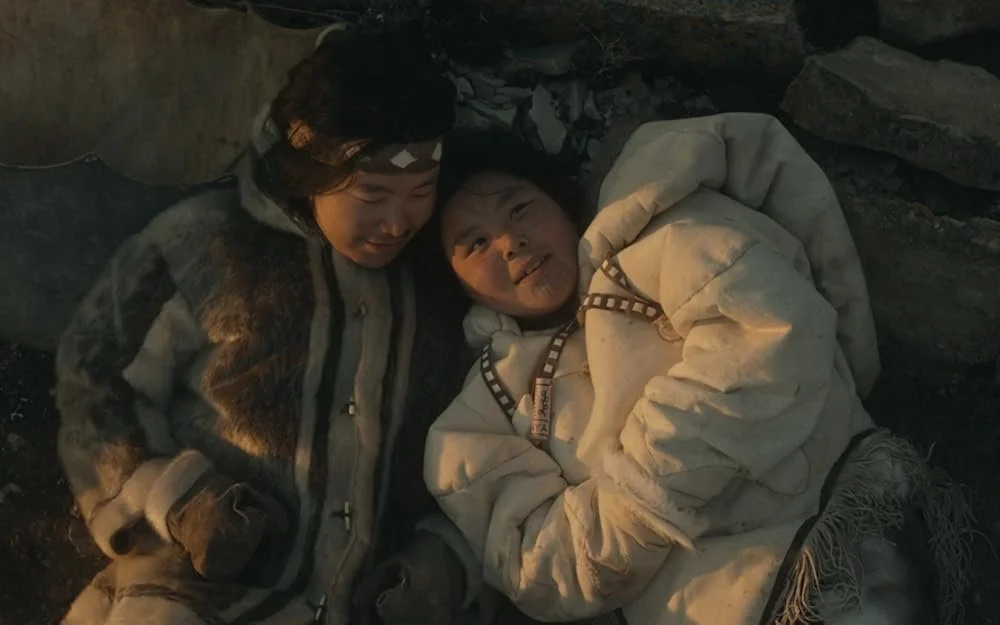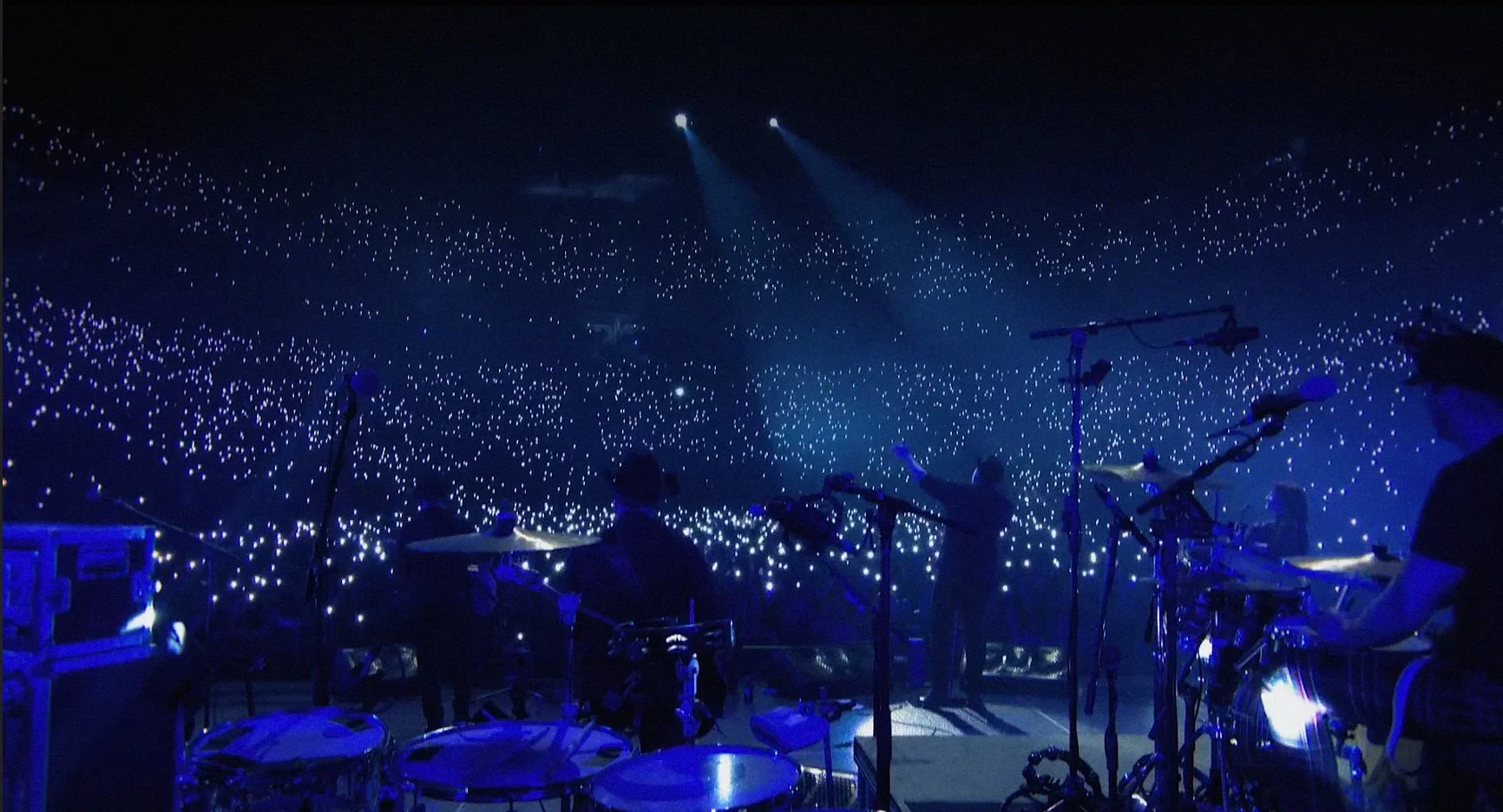Film review: Chien Blanc poses hard questions about white allyship and whether racism can be "unlearned"
Film is based on the true 1960s story of Romain Gary and Jean Seberg, and their struggles to retrain a dog bred to attack Black people
K.C. Collins plays a Black dog trainer who tries to turn around an animal who sees him as the enemy.
VIFF, Visions Ouest Productions’ 29th Rendez-Vous French Film Festival, and Tournée Québec Cinéma present Chien Blanc at VIFF Centre at 8:20 pm on February 9, with a Q&A with cowriter Valérie Beaugrand-Champagne
QUEBEC DIRECTOR Anaïs Barbeau-Lavalette’s Chien Blanc is much more than a story about a man bent on retraining a bad dog.
In her philosophical and visually poetic take on the book of the same name by famed writer and French Consul General Romain Gary, she ruminates on white allyship and guilt—subjects that resonate amid the death of Tyre Nichols and movements like Black Lives Matter.
The story is set during the U.S. civil-rights protests of the late ‘60s, where Gary attempts to retrain a stray German Shepherd that’s been trained to attack Black people. Gary (played with nuanced intensity by big-league French actor Denis Ménochet) becomes obsessed with the project, the dog symbolizing a last hope for people to unlearn racist ways. Confronted with the statement “It’s just a dog!”, he answers “It’s not!”
Gary’s wife, American actress and civil-rights activist Jean Seberg (Kacey Rohl), believes the dog should be put down. But in a parallel story, we see Seberg’s own struggles: she wants to support the Black protests, but the media attention she generates wherever she goes draws away from the cause. In one searing scene, where she attends a funeral of a Black martyr to the cause, a mourner asks her to leave: “We don’t have much Jean. Leave us our fight.” (Many attribute Seberg’s death in 1979 to the bullying she received from the Edgar J. Hoover’s FBI for supporting the Black Panthers.)
Seberg’s struggle with guilt is echoed by Gary, who needs to learn to let go and leave his ferocious pet with its Black trainer (a compelling, straight-talking K.C. Collins.) There’s also a fantastic, cringe-inducing scene where Gary is chided by a Black taxi driver for overtipping him on the day Martin Luther King has died.
Barbeau-Lavalette is wrestling with difficult questions about how privileged white activists can best support Black causes. Those questions dominate Gary’s philosophical voice-over, as he’s shown writing his book throughout the film. But the racial divides also play out from other angles: in another subplot, Gary takes in young Ballard (Jhaleil Swaby), who’s torn between his activist Black family and his pregnant white girlfriend.
The contemplative feel of Chien Blanc is reinforced by camerawork that finds lyrical details—the ink that Gary wipes from his old-fashioned pens, serene images of a garden’s flowers and spider webs, and closeups of Gary and Seberg’s young son playing with a tiny, toy dog figurine. Barbeau-Lavalette interweaves archival footage and repeated scenes of feet running and dogs chasing—a chilling reminder that so-called “white dogs” have been trained to attack Black people for centuries in the South, sadly right back to slavery.
Walking a fine line (and, tonally and content-wise, a world away from Sam Fuller’s loose adaptation, 1982’s White Dog), Chien Blanc takes pains to balance the white characters’ journeys with the much more serious tribulations of its Black ones.
Whether Barbeau-Lavalette gets that balance right is up for debate. But the film’s strength is in the fact that it refuses to offer easy answers. Even the dog’s progress is complex; at one point Gary confides to the unruly mutt that he’d settle for it to start attacking all people instead of just Black people—a kind of equal-opportunity biter.
The dog’s story still speaks to a world that has a long way to go to unlearn its racism. But Chien Blanc has even more compelling things to say about misdirected white gestures of support. The challenge lingers, as much in 2023 as 1968: How can we take part in a struggle that doesn’t belong to us? Chien Blanc seems to suggest that asking the question is at least a start.


